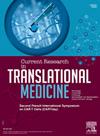Perspectives on the use and availability of chimeric antigen receptor T cells (CAR-T) and cell therapies: A worldwide cross-sectional survey by the worldwide network for blood and marrow transplantation (WBMT)
IF 3
4区 医学
Q2 MEDICINE, RESEARCH & EXPERIMENTAL
引用次数: 0
Abstract
Chimeric antigen receptor T cell therapy (CAR-T) cells represent a new generation of autologous, allogeneic and personalised cell-based therapies that have revolutionised the treatment of B cell haematological malignancies. Despite their significant effectiveness in treating challenging relapsed and refractory diseases, access to this cutting-edge treatment remains a critical issue globally, even in high income countries. To gain insights into these challenges, the Worldwide Network for Blood & Marrow Transplantation (WBMT) initiated a survey focused on the state of CAR-T and cellular therapy availability worldwide. The survey aimed to identify the accessibility, manufacturing capabilities, apheresis, accreditation, reimbursement, presence of regulatory frameworks and legal oversight of these cell-based therapies.
The survey included questions on demographics, the respondent's centre, CAR-T availability, details about haematopoietic stem cell transplant programs, supply and indications for CAR-T, quality assurance, and information about other cell and gene therapy products beside CAR-T. Conducted online over three months in 2023, the survey garnered 181 complete responses from various geographical regions, from North America, Asia, Europe, South and Central America, Australia and New Zealand, and Africa.
Our findings suggested a promising level of awareness and interest in CAR-T therapy globally, even in lower-income regions. However, survey respondents cited cost as the primary barrier to access, alongside infrastructure and governmental support issues. The survey also highlighted the varying reimbursement strategies across regions, with costs in Europe and North America being relatively similar while Asia showed more variability. There was also variability in the regulatory and accreditation frameworks associated with delivery of these novel therapies
As CAR-T therapy continues to grow, innovative solutions such as global partnerships, in-house production, and the establishment of cellular therapy centres in developing countries are essential. Addressing the challenges of access requires a comprehensive approach that combines efforts to lower costs, enhance healthcare infrastructure, and foster international collaborations, ensuring that CAR-T therapy becomes available to all who need it.

嵌合抗原受体T细胞(CAR-T)和细胞疗法的使用和可用性:由全球血液和骨髓移植网络(WBMT)进行的全球横断面调查
嵌合抗原受体T细胞疗法(CAR-T)细胞代表了新一代的自体、异体和个性化细胞疗法,彻底改变了B细胞血液病恶性肿瘤的治疗。尽管它们在治疗具有挑战性的复发和难治性疾病方面具有显著效果,但在全球范围内,即使在高收入国家,获得这种尖端治疗仍然是一个关键问题。为了深入了解这些挑战,全球血液网络;骨髓移植(WBMT)发起了一项调查,重点关注CAR-T和细胞治疗在全球范围内的可用性。该调查旨在确定这些细胞疗法的可及性、制造能力、分离、认证、报销、存在的监管框架和法律监督。调查的问题包括人口统计、被调查者的中心、CAR-T的可用性、关于造血干细胞移植项目的细节、CAR-T的供应和适应症、质量保证,以及关于CAR-T以外的其他细胞和基因治疗产品的信息。该调查于2023年进行了为期三个月的在线调查,收到了来自北美、亚洲、欧洲、南美和中美洲、澳大利亚和新西兰以及非洲等不同地理区域的181份完整回复。我们的研究结果表明,在全球范围内,甚至在低收入地区,对CAR-T疗法的认识和兴趣都很有希望。然而,受访者认为,除了基础设施和政府支持问题外,成本是接入互联网的主要障碍。调查还强调了不同地区的报销策略,欧洲和北美的成本相对相似,而亚洲则表现出更大的差异。随着CAR-T疗法的持续发展,全球合作、内部生产和在发展中国家建立细胞治疗中心等创新解决方案至关重要。应对获得治疗的挑战,需要采取综合办法,努力降低成本、加强医疗基础设施和促进国际合作,确保所有有需要的人都能获得CAR-T疗法。
本文章由计算机程序翻译,如有差异,请以英文原文为准。
求助全文
约1分钟内获得全文
求助全文
来源期刊

Current Research in Translational Medicine
Biochemistry, Genetics and Molecular Biology-General Biochemistry,Genetics and Molecular Biology
CiteScore
7.00
自引率
4.90%
发文量
51
审稿时长
45 days
期刊介绍:
Current Research in Translational Medicine is a peer-reviewed journal, publishing worldwide clinical and basic research in the field of hematology, immunology, infectiology, hematopoietic cell transplantation, and cellular and gene therapy. The journal considers for publication English-language editorials, original articles, reviews, and short reports including case-reports. Contributions are intended to draw attention to experimental medicine and translational research. Current Research in Translational Medicine periodically publishes thematic issues and is indexed in all major international databases (2017 Impact Factor is 1.9).
Core areas covered in Current Research in Translational Medicine are:
Hematology,
Immunology,
Infectiology,
Hematopoietic,
Cell Transplantation,
Cellular and Gene Therapy.
 求助内容:
求助内容: 应助结果提醒方式:
应助结果提醒方式:


